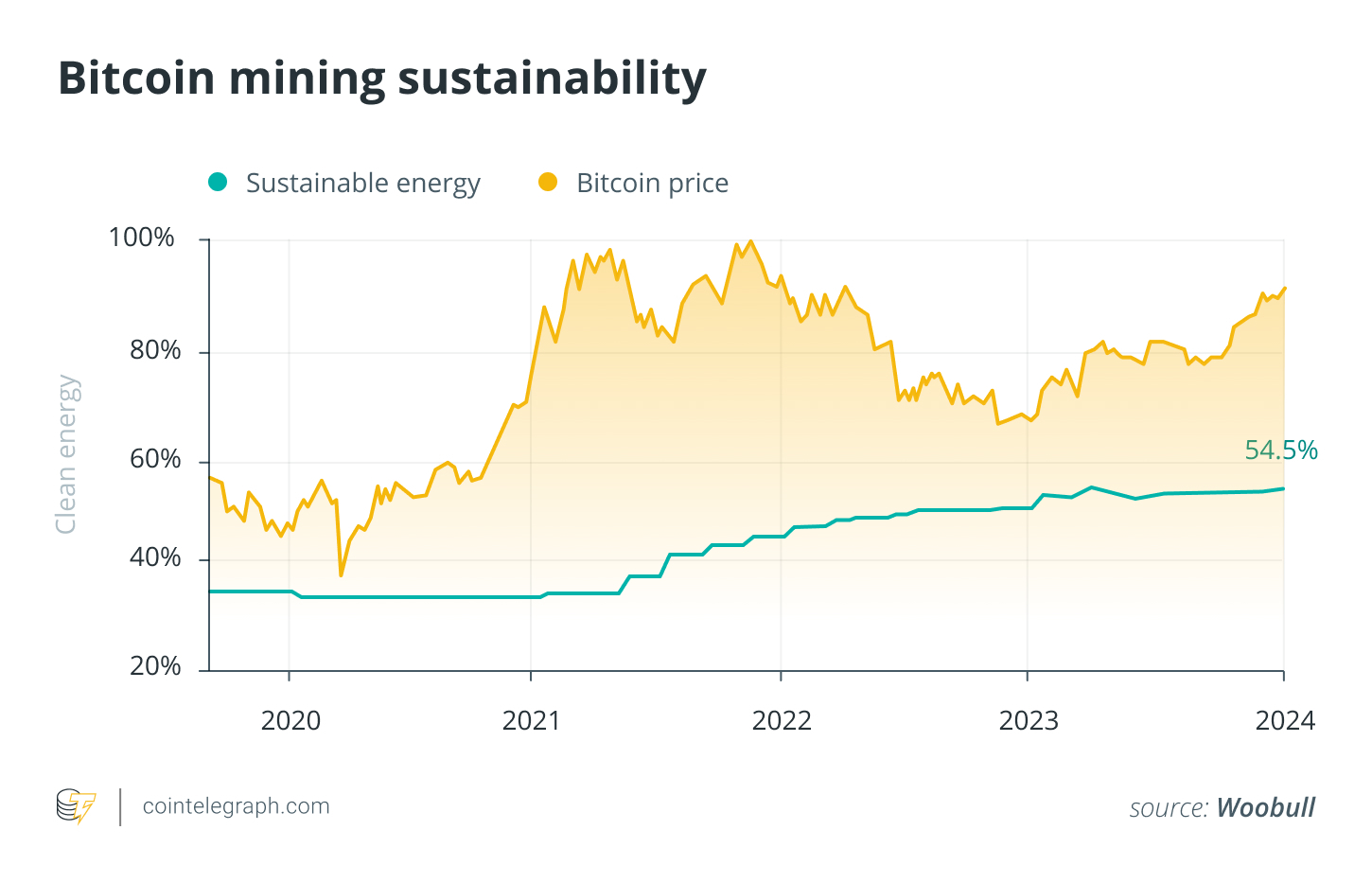
Bitcoin mining is often sold as a danger to the environment, but what if BTC could be a tool to enhance the transition to renewable energies?
The global popularity of Bitcoin (BTC) has resulted in its network energy consumption sitting at 147.3 terawatt-hours per year as of Jan. 19, 2024.
This puts the network close to the yearly average energy consumption of countries such as Ukraine, Malaysia and Poland, according to the University of Cambridge.
This nation-state level of electricity consumption, no small part of which is generated by fossil fuels, has created a narrative of Bitcoin mining being harmful to the environment. Its carbon footprint, high energy demand and water consumption may be well-founded metrics but are often used to show only one side of the coin.





